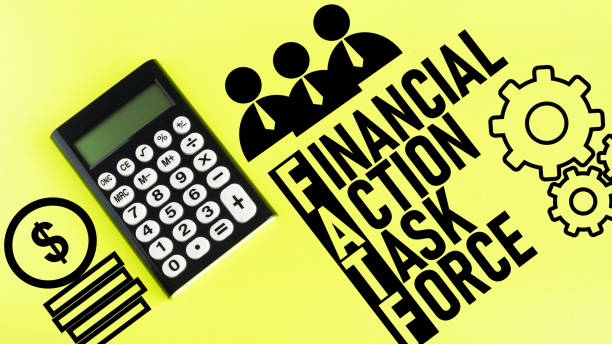Physical Address
60 Ekwema Cres, Layout 460281, Imo
Physical Address
60 Ekwema Cres, Layout 460281, Imo

In the world of international finance and regulation, the “grey list” is a term often used to refer to countries that have been identified by the Financial Action Task Force (FATF) as having strategic deficiencies in their regimes to counter money laundering, terrorist financing, and proliferation financing.
Nigeria, a prominent African nation, has grappled with this classification in recent years.
In this article, we’ll be reviewing the recent developments and ongoing efforts related to this topic and providing an update on Nigeria’s status on the FATF’s grey list as of 2024.
A Grey list is the list of jurisdictions under increased monitoring maintained by the Financial Action Task Force (FATF). It serves as a warning to countries identified as having strategic deficiencies in their anti-money laundering and counter-terrorist financing (AML/CFT) regimes.
Read also:11 Things to Consider When Buying a New Laptop in Nigeria
The Financial Action Task Force FATF is an inter-governmental body established in 1989 with the aim of setting standards and promoting effective implementation of legal, regulatory, and operational measures for combating money laundering, terrorist financing, and other related threats to the integrity of the international financial system.
The organisation identifies jurisdictions with deficiencies in their anti-money laundering and counter-terrorist financing (AML/CFT) regimes and lists them as either “high-risk” or “grey list” countries.
It works with its member countries and regional organizations to develop and implement legal and operational frameworks to address these threats.
Read Also:8 Illegal Digital Loan Companies in Nigeria You Should Avoid 2024
Countries that are considered to have deficiencies in their anti-money laundering and counter-terrorist financing (AML/CFT) regimes are placed on the FATF’s “grey list.”
Being on this list can have serious implications for a country’s financial reputation and ability to conduct international financial transactions.
While being on the grey list does not carry the same stigma as being on the FATF’s “black list” (which identifies countries with severe deficiencies in their AML/CFT regimes), it still signals that the country has work to do to bring its AML/CFT regime up to international standards.
Being on the grey list can result in increased scrutiny from financial institutions when conducting transactions with entities from that country.
This can mean additional due diligence, reporting requirements, or even restrictions on certain types of transactions.
Countries on the grey list are expected to take steps to address the deficiencies in their AML/CFT regimes and demonstrate progress in implementing the necessary reforms.
If a country fails to do so, it risks being moved to the FATF’s black list, which can have even more severe consequences for its financial reputation and ability to conduct international transactions.
Read Also:11 Things to Consider When Buying a Used HP, Dell or Mac laptop in Nigeria
A “strategic deficiency” is a significant weakness in a country’s Anti-Money Laundering/Combating the Financing of Terrorism (AML/CFT) framework that makes it susceptible to financial crimes. These strategic deficiencies can manifest in various forms:
A country may lack comprehensive laws and regulations to prevent, detect, and prosecute money laundering and terrorist financing activities.
This could include weak or outdated statutes, or loopholes that allow illicit funds to flow through the financial system.
Supervisory authorities may not effectively monitor and regulate financial institutions and other entities involved in financial transactions.
This could lead to a lack of robust internal controls, inadequate risk management practices, or insufficient reporting mechanisms.
Read also: Central Bank of Angola Escapes Hack
Law enforcement agencies may lack the resources, expertise, or legal frameworks necessary to investigate and prosecute financial crimes.
This could result in a culture of impunity for money launderers and terrorist financiers.
When a country is placed on the FATF’s grey list, it means that it has been identified as having strategic deficiencies in its AML/CFT framework.
This designation is not in the same level as being blacklisted but still has significant implications.
The country will be subject to increased scrutiny and monitoring by the FATF and other international organisations. This could involve regular assessments of the country’s progress in addressing its deficiencies and implementing necessary reforms.
Financial institutions conducting transactions involving the country may face higher compliance costs.
This could include additional due diligence measures, enhanced transaction monitoring, and increased reporting requirements.
Being on the grey list can harm a country’s reputation and credibility in the international financial community. This could undermine its ability to attract foreign investment and conduct business with reputable financial institutions.
Read Also:8 Best Apps to Save in Dollars in Nigeria 2024

As of September 2023, Nigeria exited the Financial Action Task Force (FATF) Grey List.This means the country is not currently considered to be at increased risk for money laundering and terrorist financing.
The Financial Action Task Force (FATF) has praised Nigeria for its efforts to remove the country from the grey list, a list of countries with weaknesses in their anti-money laundering and counter-terrorist financing frameworks.
This commendation was given during a meeting in Paris, France, between the Nigerian delegation, FATF officials, and representatives from the United States of America.
Moreover, at the 40th GIABA Technical Commission and Plenary Meetings held in Abuja, Nigeria’s progress was acknowledged and commended by Jeremy Weil, the Vice-President of the FATF.
Following the plenary, Nigeria’s second progress report was accepted, and upgrades against six of the FATF criteria were approved.
As a result, Nigeria is now compliant or largely compliant with 32 of the 40 FATF recommendations, showcasing its ongoing commitment to enhancing its Anti-Money Laundering and Counter Financing of Terrorism (AML/CFT) framework.
Read also:Chowdeck: a Closer Look into the Fast Growth of the Food Delivery Startup 2024
Nigeria’s past greylisting by the Financial Action Task Force (FATF) in October 2020 was a significant event for the country’s financial sector and international reputation.
The FATF’s decision to place Nigeria on the grey list was due to concerns about the country’s Anti-Money Laundering and Combating the Financing of Terrorism (AML/CFT) framework.
Specifically, the FATF identified strategic deficiencies in Nigeria’s efforts to prevent money laundering and terrorist financing, including inadequate laws and regulations, weak supervision of financial institutions, and limited enforcement capacity.
Being placed on the FATF’s grey list meant that Nigeria faced increased scrutiny and monitoring by the FATF and other international organizations.
Financial institutions conducting transactions involving Nigeria were likely to face higher compliance costs and additional due diligence requirements.
Additionally, Nigeria’s reputation and credibility in the international financial community were at risk, potentially affecting its ability to attract foreign investment and conduct business with reputable financial institutions.
However, Nigeria responded to its greylisting with significant efforts to address the FATF’s concerns and improve its AML/CFT framework.
The country implemented a series of reforms aimed at strengthening its legal and regulatory framework, enhancing the supervision of financial institutions, and improving its law enforcement capacity to investigate and prosecute financial crimes.
These efforts were recognised by the FATF, and in September 2023, Nigeria was removed from the grey list.
Read also:Meet Samsung’s Bespoke AI Refrigerator: the Refrigerator with AI-powered Capabilities
In February, the FATF put Nigeria on its grey list and asked for improvements in 15 areas. Modibbo Tukur, the Director/CEO of the Nigerian Financial Intelligence Unit (NFIU), mentioned that Nigeria worked on these areas and managed to address 13 out of the 15 points.
When a country gets grey-listed, FATF provides an Action Plan with tasks and deadlines to show the effectiveness of its AML/CFT regime and get off the grey list.
Nigeria got on the grey list in February 2023 with a 15-item Action Plan due until May 2025.Countries on the ICRG grey list must update progress every four months at FATF meetings.
Normally, countries take about two years to exit the grey list. Nigeria hasn’t missed FATF’s deadlines; in fact, it’s partly addressed 13 out of the 15 action items.
FATF looks for sustainable progress, not quick fixes, so meeting all recommendations within eight months isn’t feasible. Nigeria’s measures against money laundering and terrorist financing are mostly compliant according to GIABA.
Overall, Nigeria hasn’t failed FATF reviews and is working diligently to meet the 15 action items within the given timeframes.
Read Also:”Wangiri” Missed Call Scam: NCC Warns Nigerian Phone Users
As of today, there are about 21 countries on the FATF Grey List. Here are the current countries:
It’s important to note that this list can change as countries are removed or added based on their progress in addressing their AML/CFT deficiencies.These countries are Jurisdictions under Increased Monitoring (i.e. “grey list”)
Read also:Here is all You Need to Know About M-KOPA and its Branches Across Africa
A blacklist, also known as the Black List of High-Risk Jurisdictions, refers to a list of countries identified as having significant deficiencies in their anti-money laundering and counter-terrorist financing (AML/CFT) regimes.
These deficiencies pose a grave threat to the international financial system.
For countries seen as risky, the FATF advises all its members and urges all areas to be extra careful.
In severe situations, countries are asked to take strong actions to safeguard the global financial system from potential money laundering, terrorism funding, and proliferation financing risks coming from those places.
As of today, only 2 countries are on the FATF black list. They include:
Also note that this list can change over time as countries address their deficiencies or are identified as having new ones.
The FATF is the Financial Action Task Force, an intergovernmental organization that sets international standards for combating money laundering and terrorist financing.
The Grey List, officially known as Jurisdictions Under Increased Monitoring, identifies countries with strategic deficiencies in their AML/CFT regimes that they are actively working to address. The Blacklist, officially known as High-Risk Jurisdictions subject to a Call for Action, identifies countries with severe deficiencies and exposes them to formal sanctions.
Grey List countries face increased scrutiny and monitoring from the FATF and its members. Blacklisted countries face formal sanctions like restrictions on financial transactions and public warnings.
The lists are updated three times a year following FATF plenary meetings.
As of February 25, 2024, there are 21 countries on the Grey List.
The FATF identifies countries through its assessment process and engages them in dialogue to address deficiencies. If significant weaknesses persist, they may be added to the list.
No, Nigeria was removed from the Grey List in September 2023.
As of February 25, 2024, there are only 2 countries on the Blacklist: Iran and North Korea.
Nigeria’s removal from the FATF’s grey list was a testament to the country’s commitment to improving its AML/CFT regime and its ability to meet international standards.
It also demonstrated the importance of effective cooperation between the public and private sectors, as well as between Nigeria and the international community, in combating financial crime and maintaining the integrity of the global financial system.